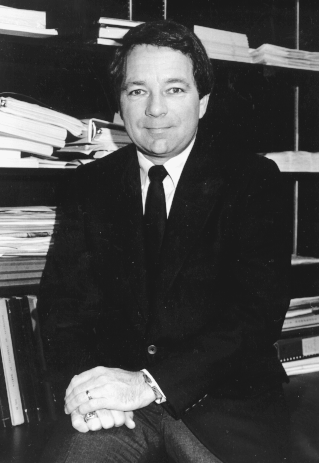Without any question, I strongly believe that integrity is the cornerstone of successful leadership in any environment. Would-be leaders who lack integrity are ticking time bombs. Their credibility is certain to crumble. They are destined to self-destruct.

However, there is another dimension of integrity that is often overlooked in leadership training. Stated simply, it is not enough for the leader alone to be a person of impeccable integrity; the entire organization must function in a way that supports and reinforces the leader’s commitment to integrity.
The importance of this point was brought home to me in a startling and revealing way in the early days of my second chancellorship, at UT Martin. At one of my weekly “dutch treat” luncheons –which I used to maintain open communications with faculty, students, alumni, and staff – a faculty member asked me a relatively simple question.
He wanted to know whether a faculty member who was promoted in rank would receive both a merit increase in salary and the promotion stipend that I had just instituted. (That campus had never given faculty any financial reward for promotion in rank.)
My answer was simply yes, with the added observation that anyone worthy of promotion in rank would clearly deserve a merit increase.
That luncheon occurred in June, shortly before our governing board acted on salaries for the next fiscal year. Seven months later, I received a long, hand-written letter from the faculty member who had asked me the question at the “dutch treat” luncheon. It was a letter I shall never forget.
In the very first paragraph the faculty member reminded me of his question and my answer and then quickly informed me that I had not done what I said the administration would do. He had been promoted but had received only the newly implemented promotion stipend. Not one cent of merit pay increase had been given to him.
I was shocked, dismayed, disappointed. My reaction was quick and forceful. A meeting of senior staff was promptly convened. The letter was shared with each staff member. I asked how it was possible that this could have happened, since every one of the senior staff had heard my response to the faculty member’s question.
The response I received from the senior administrator responsible for faculty raises shook me. I shall never forget his words: “Chancellor, we heard what you said, but we simply assumed that was just rhetoric at the podium.”
I was livid. My response was swift and clear. “Folks,” I said, “I am relatively new on this campus. You may not know me as you should. But let’s be clear about one thing: no matter how I say it – via policy, memo, or informally at the podium – I mean what I say, and I expect actions to be taken by staff that comply.”
The senior administrator then asked what I wanted done.
Should he direct the dean to correct the error and award the faculty member who wrote the letter the merit increase?
“The first thing I want you to do,” I told him, “is to provide me with a printout of all faculty who received promotions so that we may determine if additional faculty members were treated the same way as the one who wrote me.”
The printout revealed that seven faculty members had received promotion supplements but no merit increase – seven men and women, who for seven months had believed that their chancellor had not done what he said he would do.
The frightening part of this story is that had the faculty member not written the letter, I would have never known, and to this day my integrity would be questioned in the hearts of those who had been denied what I had promised.
My directive to change all seven salaries sent shock waves across the campus, strengthening the credibility of the administration and making clear to senior staff that we were going to do what we said we would do.
From that day forward, I was ever alert to breakdowns in the organization that might damage credibility. Monitoring systems were put in place to ensure that promises were kept and commitments were fulfilled. The lesson I learned was that keeping your word is not a solo act in a large organization.
-adapted from Journal of a Fast Track Life, Chapter 8, © 2018 Charles E. Smith. All rights reserved.

